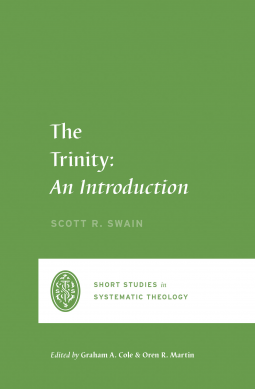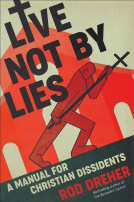
The Trinity
An Introduction
by
This title was previously available on NetGalley and is now archived.
Send NetGalley books directly to your Kindle or Kindle app
1
To read on a Kindle or Kindle app, please add kindle@netgalley.com as an approved email address to receive files in your Amazon account. Click here for step-by-step instructions.
2
Also find your Kindle email address within your Amazon account, and enter it here.
Pub Date Oct 20 2020 | Archive Date Oct 05 2020
Talking about this book? Use #TheTrinity #NetGalley. More hashtag tips!
Description
In this volume in the Short Studies in Systematic Theology series, Scott R. Swain examines the Trinity, presenting its biblical foundations, systematic–theological structure, and practical relevance for the church today.
A Note From the Publisher
PDF may not be compatible with all reading devices
Advance Praise
“The often-repeated baptismal words ‘in the name of the Father and of the Son and of the Holy Spirit’ contain the profoundest truth Christians ever hear. They show us who God is, and they teach us who we are. That is why we need to grow in our understanding and experience of them. Scott Swain helps us to do that in this welcome contribution to Short Studies in Systematic Theology. The book lives up to its description: it is short (Swain gets straight to the point); it invites you to study (no superficiality here); and it is systematic theology (and Swain is exceptionally gifted in it). Plus, you will be able to understand Swain; and you can trust what he writes. What more could you ask for in such a compact treatment?”
—Sinclair B. Ferguson, Chancellor’s Professor of Systematic Theology, Reformed Theological Seminary; Teaching Fellow, Ligonier Ministries
“Only a very gifted teacher can select the most important things to say about the holy Trinity, especially for a wide audience. Lucid, rich with scriptural interpretation, and deeply informed by the Christian tradition, this is the first book I will recommend to anyone looking for clarity that yields a harvest of delight in the triune God.”
—Michael Horton, J. Gresham Machen Professor of Systematic Theology and Apologetics, Westminster Seminary California
“What a powerful instrument this little book is, meeting the need of our moment for clear and precise teaching on this most important subject. Would you rather read a book on the Trinity that invites you into the worship of God and gives profound insight into his ways or a book that is guaranteed to provide safe, reliable, and responsible instruction? There is no need to choose: this book does it all, and in admirably brief compass.”
—Fred Sanders, Professor of Theology, Torrey Honors Institute, Biola University; author, The Deep Things of God
“Swain here takes up the practice of the ancient church, teaching the company of the baptized the grammar of the name of the one God into whose life they enter by water: ‘Father, Son, and Holy Spirit.’ This is a wonderful primer to the grammar of ‘Trinitarian discourse,’ a grammar that is needed not simply to talk theological shop with the professionals but, more importantly, to read the Bible fluently, to name God correctly, to discern the true triune God from idols, and to praise the name of the one who invites us into the fellowship of the Father and the Son through the Spirit. This book edifies even as it educates.”
—Kevin J. Vanhoozer, Research Professor of Systematic Theology, Trinity Evangelical Divinity School; author, Is There a Meaning in This Text?; The Drama of Doctrine; and Biblical Authority after Babel
“Through his attentive comprehension of Scripture and with prudence and ease, Scott Swain creates a profound and engaging portrayal of the triune God whom Christians worship. The Trinity will doubtless become the standard text for those requiring an accessible primer for this foundational doctrine. But the book’s concise nature should not lull the expert, for Swain also offers persuasive verdicts defending classic orthodoxy against both contemporary and ancient challenges.”
—Malcolm B. Yarnell III, Research Professor of Theology, Southwestern Baptist Theological Seminary; author, Who Is the Holy Spirit? and God the Trinity
“This book is easily the best introduction to the doctrine of the Trinity that I know of. Scott Swain shows not just that the Bible teaches the Trinity but how it does so. With lucid brevity he introduces crucial, classical distinctions that help us discern the Bible’s Trinitarian grammar. Reading this book will help you to proclaim and praise the triune God more fluently. I plan to give away many copies to members of my church.”
—Bobby Jamieson, Associate Pastor, Capitol Hill Baptist Church, Washington, DC; author, Jesus’ Death and Heavenly Offering in Hebrews
Available Editions
| EDITION | Other Format |
| ISBN | 9781433561214 |
| PRICE | $15.99 (USD) |
| PAGES | 160 |
Links
Featured Reviews
 Scott C, Reviewer
Scott C, Reviewer
Swain, Scott R. The Trinity: An Introduction. Wheaton, IL: Crossway, 2020. $15.99
Dr. Scott Swain provides a book on the Trinity that fits into an interesting category. It is a thorough, academic introduction and the reader does not encounter Hebrew and Greek verses. Unfortunately, I do not think the average who has more electronic devices than books in their house can quickly grasp the concepts and terms offered in The Trinity. Yet, this says more about the 'average Christian' than the excellent book Dr. Swain has written.
Dr. Swain acknowledges he writes with the student of theology, pastor, or "interested laypersons" in mind. As I read through The Trinity I was reminded of something the author states in the introduction. "No topic of study is more rewarding, or more challenging, than the doctrine of the Trinity. Nor is any topic of study fraught with greater possibility of error." This is a reference to Augustine's work on the Trinity and is certainly true. Even having studied systematic theology before, there were times I would pause and think, "this is all going right over my head."
At the same time, Dr. Swain creates an accessible introduction to such a challenging field of study. The book itself, filled with Scripture references, only has eight chapters and is under 180 pages including the index! The author starts by looking at the patterns of 'grammar' that Scripture uses (chapter 1) and the types of biblical texts which teach the Trinity (chapter 2). Chapter 3 is a brief exploration of the 'simplicity' of God before exploring each person of the Trinity in the following chapters (chapters 4-6). The last two chapters cover the 'shape' (chapter 7) and 'end' (chapter 8) of 'God's Triune Work'.
Dr. Swain succinctly explains some of the heresies surrounding the Son as the second person of the Trinity, including the recent controversy with proponents articulating an eternal functional subordinationism (EFS). Swain does not dwell upon these errors long to not distract from the introductory nature of the book. He also provides a couple of options for further reading at different difficulty levels for those interested.
I am excited about the series Crossway is putting together of "Short Studies in Systematic Theology" and think Dr. Scott Swain provides the church an invaluable resource. Pastors need this on their shelf. It offers a quick reference and summary responses to questions they will face. Students, future or current, would do well to work their way through the chapters in this book. There is particular value in reading this volume in advance, or alongside, of studying systematic theology and before getting into Bavinck and similar volumes. For the lay Christian, I would highly recommend getting this introduction. This applies especially if you enjoy studying. However, I would encourage small groups or Sunday school classes to consider working through a chapter per week. I do believe the 'average Christian' can approach this book and be edified in the process.
I received a complimentary digital copy of this book from the publisher through Netgalley for review purposes. My comments are independent and my own.










